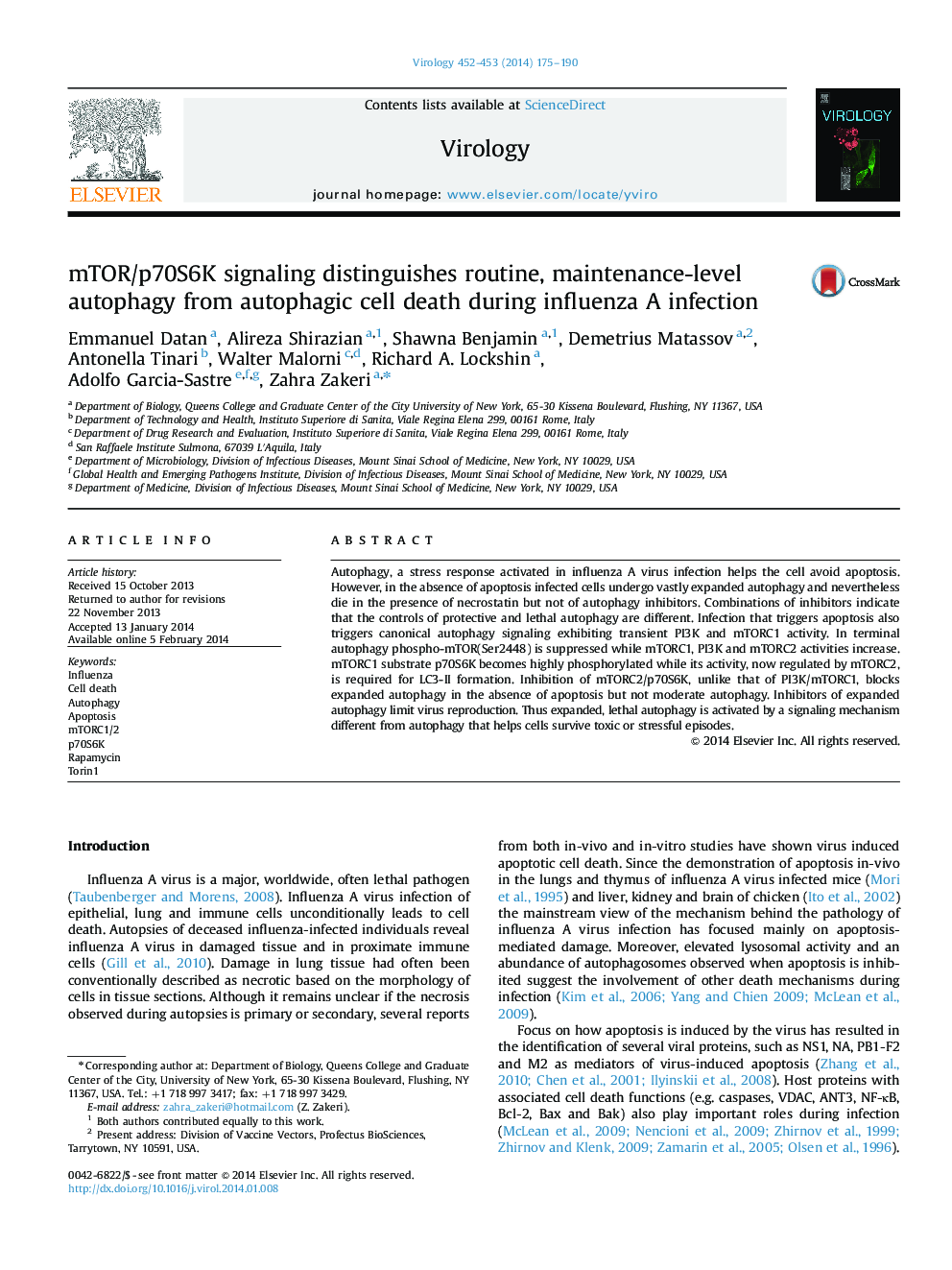| Article ID | Journal | Published Year | Pages | File Type |
|---|---|---|---|---|
| 6140255 | Virology | 2014 | 16 Pages |
Abstract
Autophagy, a stress response activated in influenza A virus infection helps the cell avoid apoptosis. However, in the absence of apoptosis infected cells undergo vastly expanded autophagy and nevertheless die in the presence of necrostatin but not of autophagy inhibitors. Combinations of inhibitors indicate that the controls of protective and lethal autophagy are different. Infection that triggers apoptosis also triggers canonical autophagy signaling exhibiting transient PI3K and mTORC1 activity. In terminal autophagy phospho-mTOR(Ser2448) is suppressed while mTORC1, PI3K and mTORC2 activities increase. mTORC1 substrate p70S6K becomes highly phosphorylated while its activity, now regulated by mTORC2, is required for LC3-II formation. Inhibition of mTORC2/p70S6K, unlike that of PI3K/mTORC1, blocks expanded autophagy in the absence of apoptosis but not moderate autophagy. Inhibitors of expanded autophagy limit virus reproduction. Thus expanded, lethal autophagy is activated by a signaling mechanism different from autophagy that helps cells survive toxic or stressful episodes.
Related Topics
Life Sciences
Immunology and Microbiology
Virology
Authors
Emmanuel Datan, Alireza Shirazian, Shawna Benjamin, Demetrius Matassov, Antonella Tinari, Walter Malorni, Richard A. Lockshin, Adolfo Garcia-Sastre, Zahra Zakeri,
